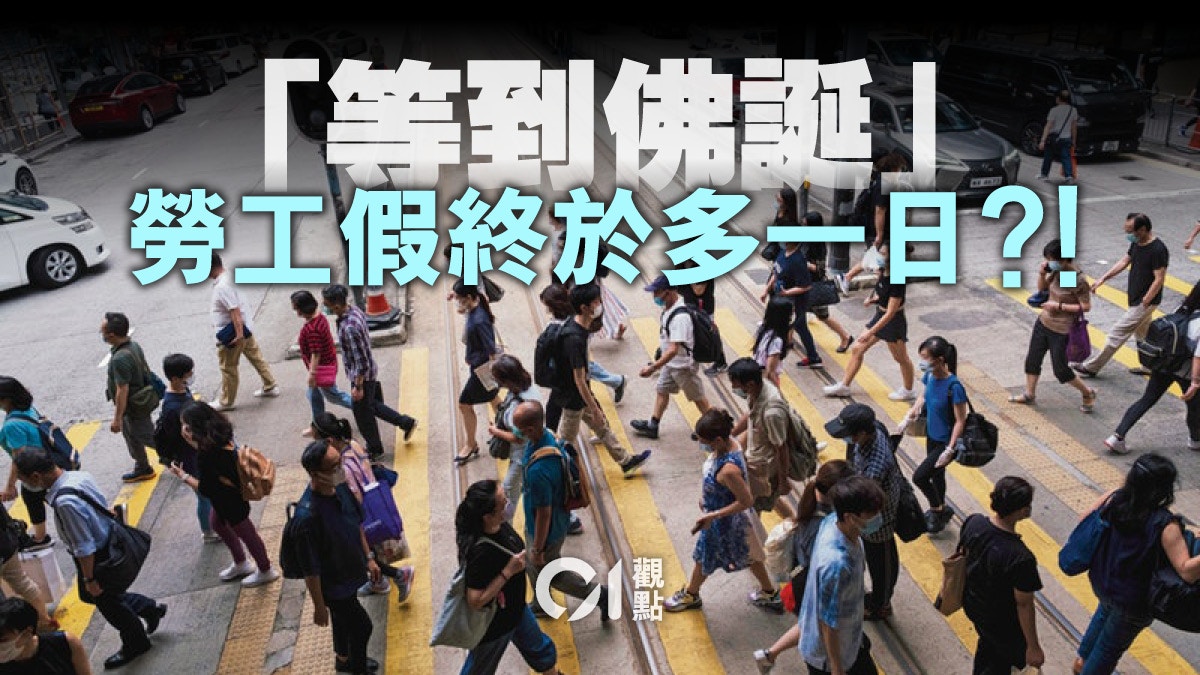01 view
Written by: Commentary Editing Room
2021-01-15 07:00
Last update date: 2021-01-15 07:00
The Labour and Welfare Bureau submitted a document to the Legislative Council, proposing to gradually increase the number of statutory holidays under the Employment Ordinance to match the number of public holidays. It is expected that as many as 1.2 million employees will benefit.
However, the rights and interests of labor in Hong Kong are seriously lagging behind those of advanced economies, and the arrangements have been more than commercial for eight years. Moreover, issues such as standard working hours and unemployment assistance have been discussed for years without resolution. It is evident that the government has ignored labor rights.
After many years of discussions on the equal rights of labor holidays, the government finally submitted a document to the Legislative Council, proposing to gradually increase the number of statutory holiday days from next year, from the current 12 days to 17 days, so that it can match the number of public holidays.
The newly added five-day holidays are public holidays that are not currently statutory holidays, that is, the birthday of the Buddha, the first Sunday after Christmas, Easter Monday, Good Friday and the following day.
According to rough estimates by the government, about 1.2 million employees in Hong Kong will benefit.
Holiday equality is an early move, but the authorities claim that taking into account the interests of both employers and employees and the current economic situation, it is recommended to add one statutory holiday every two years, that is, to implement it in phases over a total of eight years.
Extra expenses may be exaggerated
The government proposes to add one statutory holiday every two years, claiming to take into account the impact of the epidemic so that employers have enough time to prepare, but the cost involved in the policy may not be as heavy as the government and the business community claim.
First of all, although Hong Kong is still plagued by the epidemic and its economic outlook is hardly optimistic, it is expected that with the popularization of vaccines, economic activities are believed to return to normal before the implementation of the new measures.
In addition, the government also predicts that the potential additional expenses involved in each additional day of statutory holiday will only be 0.07% for all industries’ total salary expenses, while the figure for low-wage industries is only 0.17%, which will never increase the profits of normal operating companies. Retrograde, so there is still capital to add two days of holidays a year.
Even if many employers think that the above costs are unbearable and will weaken the competitiveness of Hong Kong's economy, there are considerations that are difficult to quantify to increase holidays.
In addition to studies that have pointed out, increasing statutory holidays and productivity are not necessarily inversely related. Improving labor treatment will not only allow employees to take multiple days off, share family happiness, and indirectly stimulate holiday spending, but will also increase employee morale and reduce labor costs. Chance of injury.
In the consultation meetings held in October and November last year, the employee representatives of the LAB believed that the authorities should shorten the implementation time.
Although the documents submitted by the Bureau of Labor and Welfare claimed that the current plan was "not too controversial," the six new labor representatives of the LAB immediately stated that they would never accept the 2030 plan and reprimanded the government for "pushing a plan that is too harsh on the business community."
The Bureau of Labor and Welfare should correct its practices as soon as possible and put forward a reasonable timetable for speeding up implementation.
Overall labor protection is insufficient
What's more important is that not only has the rights of workers' holiday equalization been delayed for many years, but the rights and interests of the workers in Hong Kong are also under-protected. Increasing the holiday is only to alleviate the current situation of serious exploitation of workers.
According to the statistics of the International Labour Organization (ILO), in 2018, the average working hours of local workers in Hong Kong was 42 hours per week, second only to Singapore, and far ahead of the United States (37 hours), the United Kingdom (36 hours) and Germany (35 hours).
However, in the 2010-11 Policy Address, the Hong Kong government has long stated that with the effective minimum wage, the government will carry out policy research on standard working hours. Only ten years have passed. The research report published in 2012 has long since fallen into disrepair. Yielding to the pressure of the business community, they often respond to the demands of the working class with "trailing words".
Although the business community is a major obstacle to the promotion of labor rights, the government, as the "arbitrator" of labor and management, has its own policy philosophy.
Although the take-off of Hong Kong's economy depends on the principle of free market, and the market as a means of resource allocation undoubtedly has its advantages, but from the development of countries after the industrial revolution, we can see that the so-called "freedom" here is only the freedom of capital expansion, and the price is inevitable. It is based on the exploitation of poor labor, so government intervention and correction are necessary.
However, after the reunification of the Hong Kong Government, it has followed the old ways and ignored the accumulated shortcomings of the Hong Kong and British era. Only then will it contribute to social problems such as the disparity between the rich and the poor.
Just as the Director of the Bureau of Labor and Welfare, Law Chi-kwong, when talking about unemployment assistance, he preliminarily assumed that the policy would create "moral hazard", that is, employees would not rush to work and abuse public benefits, but ignore the basic-level employees being caught by the epidemic. The miserable situation of the employer abandoning his soldier to protect his handsome.
It is true that the business community’s pursuit of profit is by nature and it is difficult to assume social responsibilities. However, the government’s labor issues often pretend to be neutral, which itself ignores the extremely asymmetric power of labor and management, and has become the biggest obstacle to labor protection.
01 view
The relaxation of the binary discount will implement the charging system as soon as next year to improve
Talking about the fact that the government should really help the poor
Five Hong Kong people and one poor poverty alleviation requires global reform
Luo Zhiguang Buddhism Department supports migrant workers as mermaid
Labour and Welfare Bureau Luo Zhiguang 01 Viewpoint














